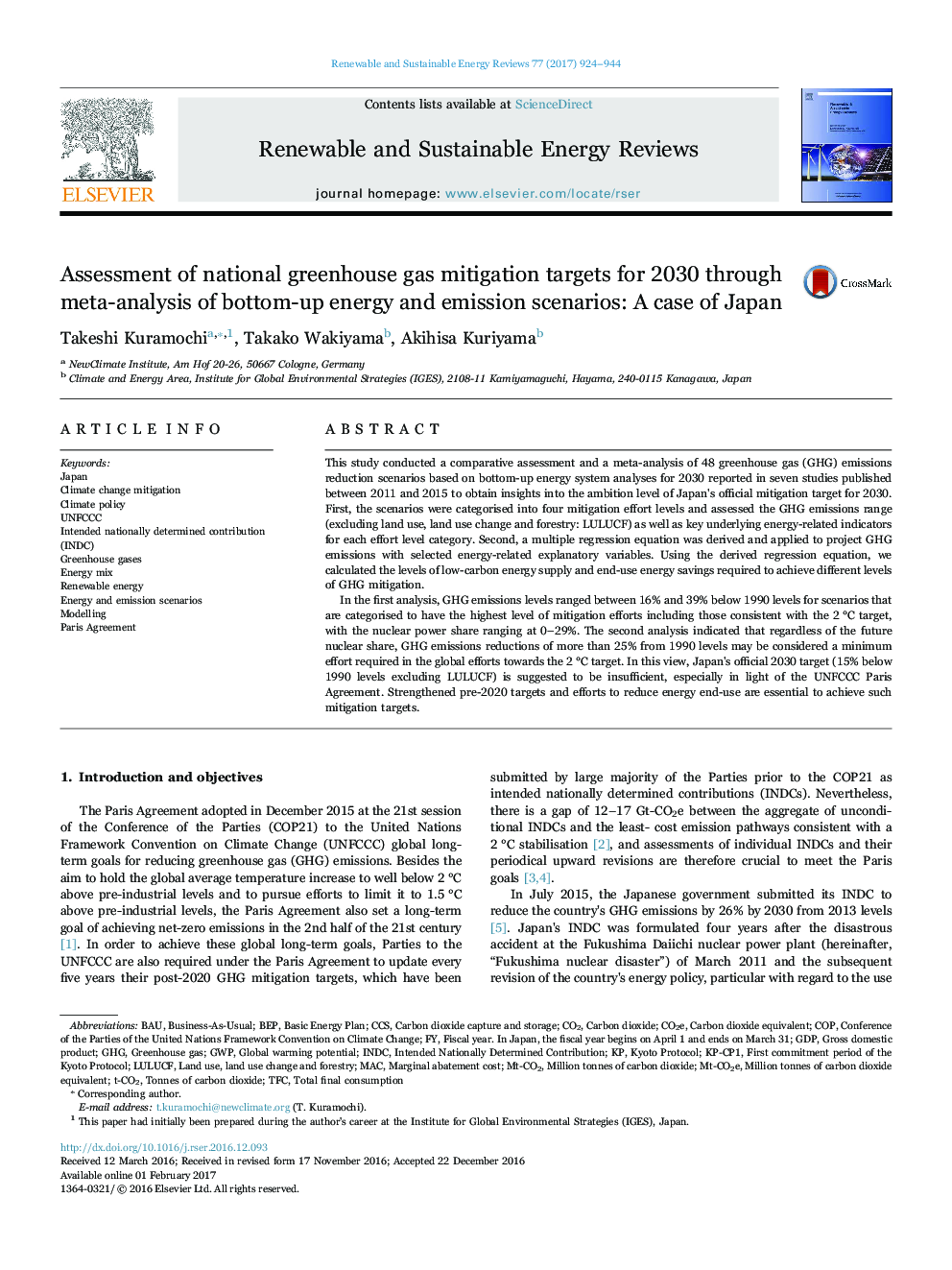| کد مقاله | کد نشریه | سال انتشار | مقاله انگلیسی | نسخه تمام متن |
|---|---|---|---|---|
| 5482986 | 1522309 | 2017 | 21 صفحه PDF | دانلود رایگان |
This study conducted a comparative assessment and a meta-analysis of 48 greenhouse gas (GHG) emissions reduction scenarios based on bottom-up energy system analyses for 2030 reported in seven studies published between 2011 and 2015 to obtain insights into the ambition level of Japan's official mitigation target for 2030. First, the scenarios were categorised into four mitigation effort levels and assessed the GHG emissions range (excluding land use, land use change and forestry: LULUCF) as well as key underlying energy-related indicators for each effort level category. Second, a multiple regression equation was derived and applied to project GHG emissions with selected energy-related explanatory variables. Using the derived regression equation, we calculated the levels of low-carbon energy supply and end-use energy savings required to achieve different levels of GHG mitigation.In the first analysis, GHG emissions levels ranged between 16% and 39% below 1990 levels for scenarios that are categorised to have the highest level of mitigation efforts including those consistent with the 2 °C target, with the nuclear power share ranging at 0-29%. The second analysis indicated that regardless of the future nuclear share, GHG emissions reductions of more than 25% from 1990 levels may be considered a minimum effort required in the global efforts towards the 2 °C target. In this view, Japan's official 2030 target (15% below 1990 levels excluding LULUCF) is suggested to be insufficient, especially in light of the UNFCCC Paris Agreement. Strengthened pre-2020 targets and efforts to reduce energy end-use are essential to achieve such mitigation targets.
Journal: Renewable and Sustainable Energy Reviews - Volume 77, September 2017, Pages 924-944
